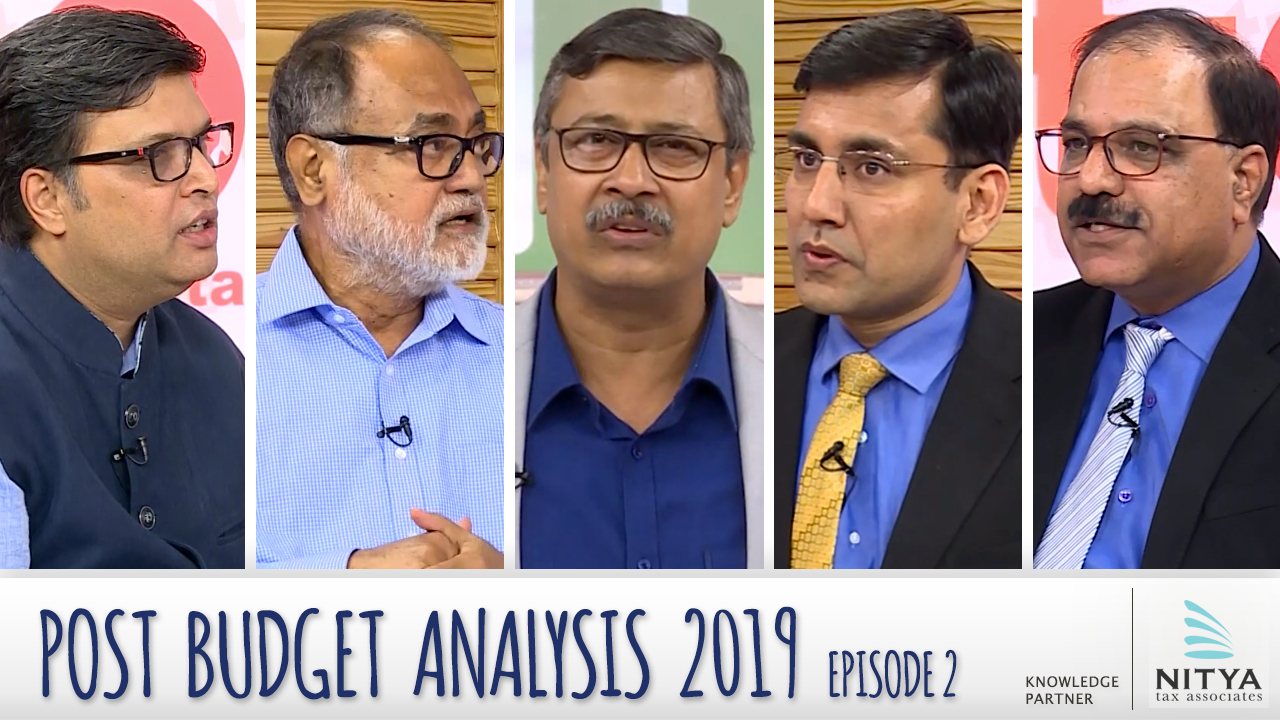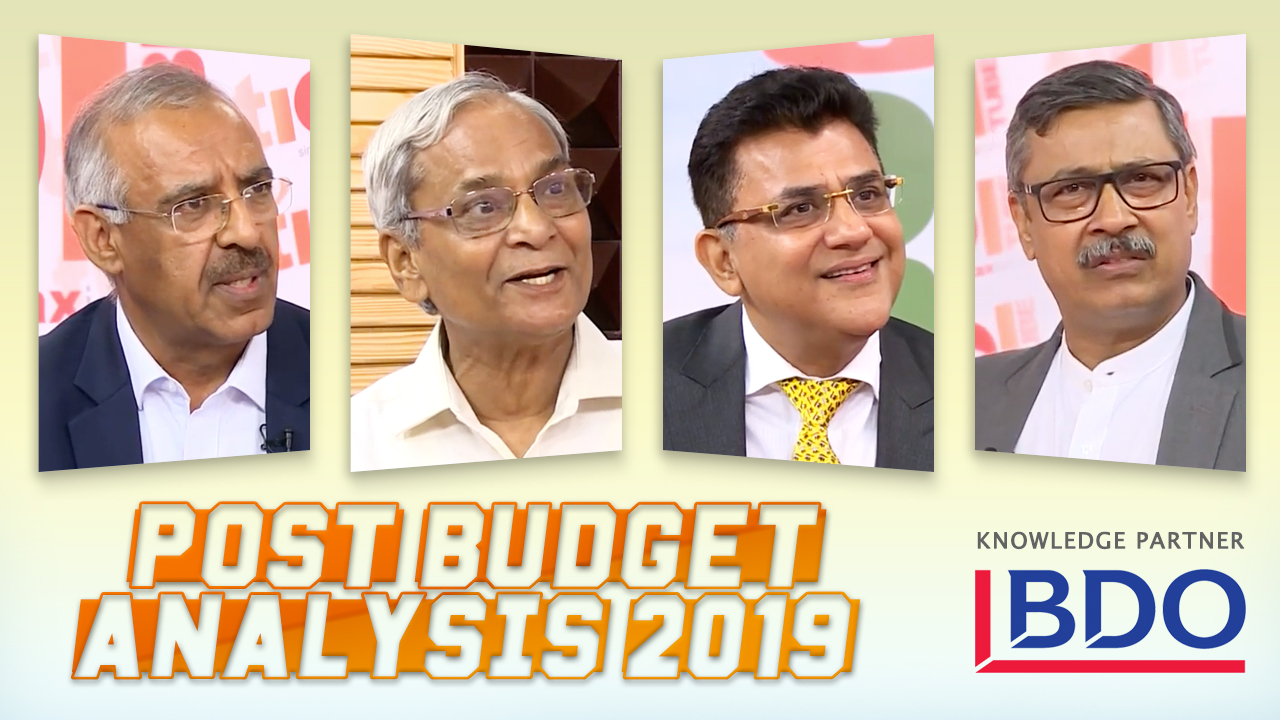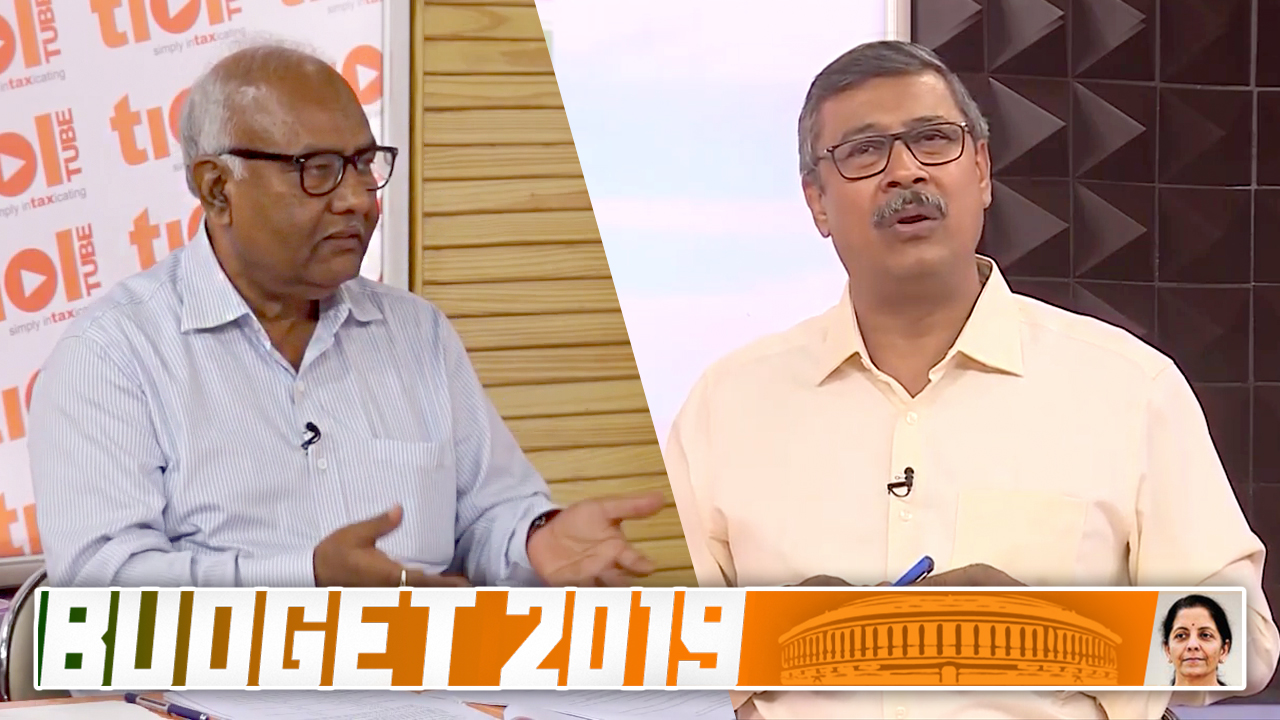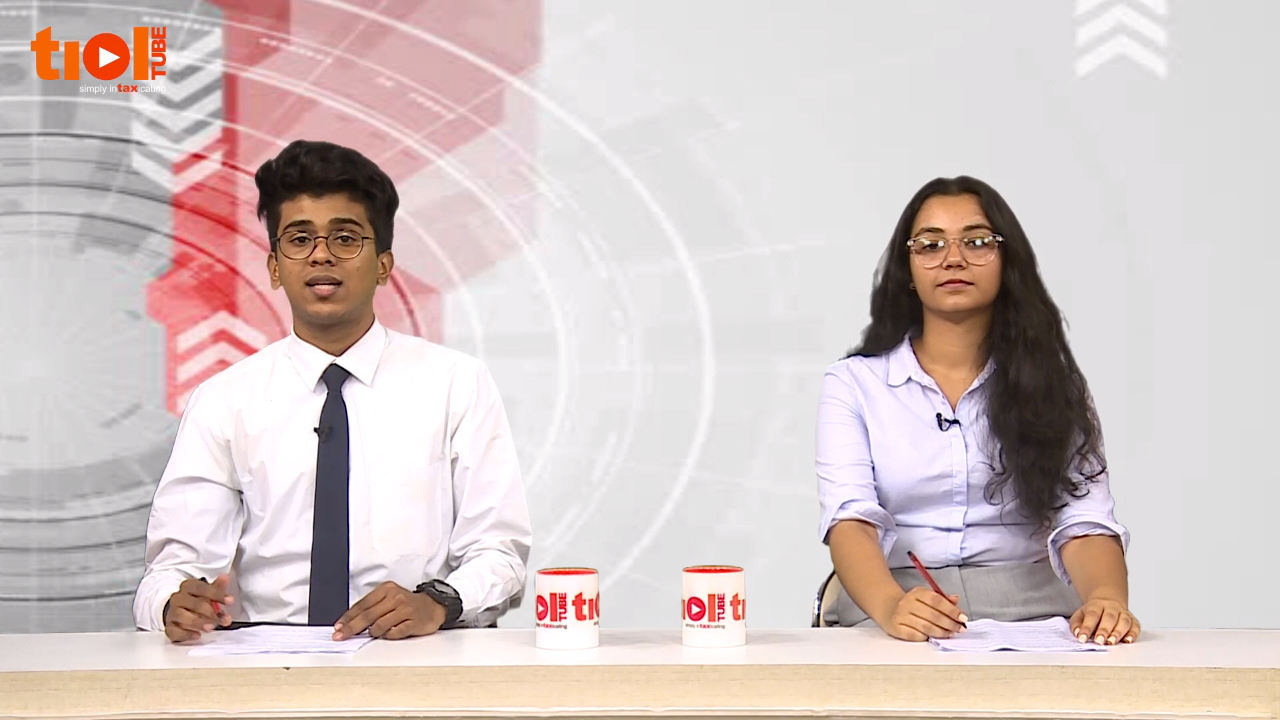|
SERVICE TAX
2019-TIOL-2006-CESTAT-MUM
Wartsila India Ltd Vs CST
ST - The assessee-company is engaged in operation of power plants and generation of electricity - The customers have captive power plants for generating power which is in turn used for manufacturing dutiable final products - It entered into operation & maintenance agreements with various customers at various locations - Under such agreements, the assessee had to operate & run the plant for generating power within the norms set for consumption of fuel oil, lube oil, spare parts & maintain the plant - The assessee charged operation fee & maintenance fee from the customers for operating & maintenance of the plants - The assessee began paying service tax on maintenance fee collected, although it harbored the opinion that no tax was payable on the same - The Revenue opined that the power plant is immovable property & operation thereof would amount to management of an immovable property taxable under the category of management & repair service - The assessee later began paying service tax on operation fee claiming that as the customer was entitled to credit of the same & the assessee did not want to litigate as it was a revenue-neutral situation - The Revenue issued an SCN raising duty demand under Management, Maintenance or Repair Services for the relevant period - Such demand was confirmed upon adjudication along with penalties imposed u/s 76, 77 & 78 of the Finance Act 1994 - Hence the present appeal.
Held: Management, Maintenance or Repair Service - The assessee is only operating the power plants & are not managing the plant for others - In other terms, the assessee is using the plant themselves - Other activities such as maintenance are incidental to the main activity of power generation - These are undertaken for smooth functioning & operation of the plant - In effect, the maintenance part of the activities are in the nature of self service to the assessee - Hence the service would not fall under Management, Maintenance or Repair Services - Further, any management is done by the assessee incidental to the activity of power generation - The assessee's activity also includes operation of power plant - The term operation does not feature in the definition of Maintenance & Repair service relied on by the Department - Thus, it is very much clear that management of immovable property does not include operation activities - Hence the O-i-O merits being quashed: CESTAT
- Assessee's appeal allowed: MUMBAI CESTAT
2019-TIOL-2005-CESTAT-BANG
VMGR Hotels And Resorts Pvt Ltd Vs CCT & CE
ST - The assessee is holder of Service Tax registration under Section 69 of FA, 1994 under category of 'Restaurant Service' and 'Accommodation Service' - The only question to be decided is whether the refund amount which is claimed by assessee is hit by Doctrine of Unjust Enrichment or not - Further, assessee filed the refund claim after the decision of Kerala High Court where the High Court has held that levy of service tax on 'Restaurant Services' and 'Short-term Accommodation Services' was beyond the legislative competence of the Parliament as transaction is covered by Entry 54 of List 2 of Seventh Schedule to the Constitution of India - Refund claim filed by assessee was sanctioned by adjudicating authority but the same was credited to Consumer Welfare Fund as per Section 11B(2) of Central Excise Act as made applicable to Service Tax as per Section 83 of Finance Act, on the ground of unjust enrichment - The Doctrine of Unjust Enrichment is not applicable because the Range Officer after verifying the records of assessee has filed a report wherein he has categorically stated that the assessee has not collected the service tax from service recipient and the aspect of unjust enrichment is absent - The original authority as well as the appellate authority has come to the conclusion that since the assessee has shown the amount of refund as expenses in Profit and Loss Account and thereby they have passed on to its customers - This issue has been considered by Madras High Court in the case of Flow Tec Power and it has come to the conclusion that the unjust enrichment is not applicable even when the refund amount is claimed as expenses in the Profit and Loss Account - The impugned order is not sustainable in law in view of the decision of the Madras High Court and therefore, same is set aside: CESTAT
- Appeal allowed: BANGALORE CESTAT
2019-TIOL-2004-CESTAT-ALL
UP State Construction And Infrastructure Development Corporation Ltd Vs CCGST & CE
ST - The assessee had submitted an application for refund on 06.02.2017 in terms of Section 102 of FA, 1994 - The Lower Authorities have held that Sub-section (3) of Section 102 provides for submission of refund claim in respect of Service Tax paid from 1st April, 2015 to 29th February, 2016 in respect of taxable services provided to Government within a period of 6 months from the date on which Finance Bill, 2016 received the assent of the President of India - It was further informed that the said Finance Bill, 2016 received assent of the President of India on 14.05.2016 and therefore the last date for filing refund claim under Section 102 of the Finance Act, 1994 was 13.11.2016 - The Lower Authorities have held that the assessee's application for refund was filed by assessee on 06.02.2017 and therefore, the same was hit by limitation under Sub-section (3) of Section 102 ibid - No infirmity found in the impugned order: CESTAT
- Appeal rejected: ALLAHABAD CESTAT
CENTRAL EXCISE
2019-TIOL-2003-CESTAT-ALL
Tirupati Glass Industries Vs CCE
CX - The assessee was manufacturer of goods falling under Chapter 70 of Schedule to CETA, 1985 - In fact the activity was printing of glass bottles and said activity was declared as manufactured through Chapter Note of Chapter 70 - Officers of Central Excise visited the assessee unit in the month of March 2016 and detained goods available within the factory since the assessee was not paying Central Excise duty and had not obtained Registration - On provisional release the goods were placed at the disposal of assessee and as per the submissions during hearing assessee has cleared the said goods on payment of duty whenever the occasion for clearance arose - Therefore, it is not established that the goods which were confiscated were cleared without payment of duty and therefore, there was no occasion to demand central excise duty on the same - As a result there was no occasion for invocation of provisions of Section 11AC of CEA, 1944 in respect of confiscated goods - Order of confiscation under Rule 25 of CER, 2002 is not as per the provision of law - Whereas the confiscation is not as per the provision of law, the charge of abatement for clandestine removal does not survive - The impugned order is set aside: CESTAT
- Appeals allowed: ALLAHABAD CESTAT
2019-TIOL-2002-CESTAT-ALL
Shivam Masale Pvt Ltd Vs CCE
CX - The assessee is engaged in manufacture of 'PARAS' brand Gulab Jamun Mix and Nutree, Spices and Pickles - Most of their items of production were exempt from payment of duty under Notfn 06/2002-CE as amended - It appeared to revenue that the value of clearance of all excisable goods had exceeded the prescribed limit of Rs. 3 crores during the previous year - Accordingly, it appeared that the assessee was not entitled to SSI exemption and duty was levied - It was further alleged that assessee have wrongfully availed exemption from duty on the clearances of 'PARAS' brand Gulab Jamun Mix and 'PARAS' brand Nutree in Financial Year 2003-04 by deliberately considering the fact that they were not eligible for SSI exemption and hence the provisions of Section 11A(1) for invocation of extended period of limitation was invocable - The court below have erred in not granting adequate opportunity of hearing to the assessee - After the receipt of the report of Deputy Commissioner, the Additional Commissioner have not given any opportunity to the assessee nor made them aware with such a report which has been collected behind the back of the assessee - Accordingly, the impugned order is in the teeth of the ruling of Supreme Court in case of Dhakeshwari Cotton MIIIs wherein it is observed in said ruling that an Adjudicating Authority is bound to make assessee aware with the materials collected behind the assessee and to give them adequate opportunity to meet the case of Revenue - Accordingly, the impugned order is set aside and matter is remanded back to the file of Adjudicating Authority to re-adjudicate the SCN after providing a copy of the said report of Deputy Commissioner after perusing the reply and on objections of assessee and after hearing them to pass de novo order in accordance with law - Thus the appeal is allowed by way of remand: CESTAT
- Matter remanded: ALLAHABAD CESTAT
2019-TIOL-2001-CESTAT-AHM
Sarvaiya Chemicals Industries Pvt Ltd Vs CCE & ST
CX - The assessee availed cenvat credit in respect of invoices issued by importer who is registered as a first stage dealer under Rule 9 of CER, 2002 by amending Notfn 8/2004-CE (NT) - The case of the department is that since the supplier importer was registered as a first stage dealer but not registered as importer for issuing invoice, the invoice issued by him is invalid document and cenvat credit is not admissible - Though the invoice was issued by importer not as a registered importer for issuing the invoice but he issued the invoice as a first stage dealer, the first stage dealer registration is also under Rule 9 and which was in force at the time of issuing the invoice, therefore, the invoice issued by an importer even in the capacity of first stage dealer, it cannot held invalid particularly for the reason that the first stage dealer invoice also contain all the information such as duty payment particulars and importers bill of entry, therefore, the duty which was passed on as a cenvat credit, payment thereof is not under dispute - Receipt of inputs and used thereof also not in dispute, therefore merely for procedural lapse, substantial benefit of cenvat credit cannot be denied - Therefore, the cenvat credit taken on the strength of first stage dealer invoice even though issued by importer is admissible to assessee hence, the impugned order is set aside: CESTAT
- Appeal allowed: AHMEDABAD CESTAT
CUSTOMS
2019-TIOL-2000-CESTAT-MUM
Kostwein India Company Pvt Ltd Vs CC
Cus - The assessee have registered with SVB Mumbai - The revenue asked the assessee to furnish documents, written Submissions and questionnaire duly filled in terms of board circular 11/2001 Customs - The Applicant submitted the same - The department is seeking to add technical know- how fees and royalty charges payable or paid by assessee to their foreign suppliers - Even the Commissioner (A) was not categorical in finding that these payments are required to be included - Commissioner (A) relied on the Supreme Court’s decision in case of Ferodo India Pvt. Ltd. - 2008-TIOL-28-SC-CUS - He holds that the payment made towards royalty and technical know-how are includable in assessable value of imported goods if such payment is a precondition for the supply of imported goods - Commissioner (A) does not come to a conclusion whether such payment are a pre-condition to the supply - Without arriving at a definiture conclusion such addition is not justifiable and to that extent the Commissioner (A) has clearly erred - The original authority has compared the invoice prices with list prices of the supplier and found that they are in order - He found that the foreign supplier raises invoices Ex-works after adding mark ups - The original authority finds that 15% of marks up are added to cover the expenses and profit margin and therefore the relation has not influenced the prices - The original authority also finds that the technical know-how fees is more relatable to the technology imparted than to the goods imported and that it is not a pre-condition for import of goods - It is also pertinent to note that the assessee also procuring 39% of the parts/components required from the domestic market - Commissioner (A) has not gone into the facts of the case and has not given any reasoning for the conclusion drawn therein - As far as the relationship has not influenced the pricing pattern there is no justification for inclusion of royalty and technical know-how in the assessable value of imported products - Therefore, the impugned order is set aside: CESTAT
- Appeal allowed: MUMBAI CESTAT
2019-TIOL-1999-CESTAT-MAD
Vee Vee Clearing And Forwarding Pvt Ltd Vs CC
Cus - The appellant is a Customs broker - During the relevant period, an adjudication order was passed, ordering the continuation of suspension of the appellant's license - Enquiry report was filed after over 2 years - Thereafter another O-i-O was passed revoking the license for failure to comply with Regulation 13(a), 13(d) & 13(o) of CBLR - On appeal, the Tribunal directed restoration of license - The Revenue approached the High Court, which reserved its order.
Held: The issue of whether or not the assessee satisfied the conditions of CBLR or non-disclosure of criminal cases cannot be looked into, since the issue is pending before the High Court - The communication is also clear that when the Asst Commr indicated approval of the Commr. of Customs in renewing the license, the same also indicates the life of the renewed license which is 10 years thereafter - This means that decision has been taken as to renewal and is duly communicated - The Asst Commr also directs the production of original license for making necessary endorsement - This requirement of production cannot come in the way of granting license since it is a mere formality of affixing the stamp - Nonetheless, there is a direction from the High Court that grant of license is subject to outcome of appeal pending before the Division Bench of the High Court, which heard the CMA and reserved its judgment - Till then the order of this bench with no stay must be implemented - Hence the O-i-O in challenge cannot be sustained: CESTAT
- Assessee's appeal allowed: CHENNAI CESTAT |









